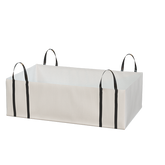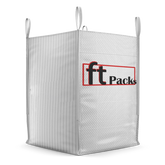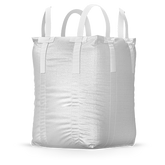Valve bags have emerged as a quintessential solution in the packaging industry, offering unparalleled benefits for a multitude of dry flowable products. Proper packaging is not just about containment; it's about ensuring product integrity, safety, and efficiency. For businesses dealing with fine powders and granular substances, valve bags provide a robust and versatile packaging option.
Understanding Valve Bags
Valve bags are designed with a unique valve mechanism that facilitates easy filling and secure sealing. Constructed from multiple layers of durable materials, these bags are engineered to withstand rigorous handling. The valve, typically located at a corner or edge, allows for swift filling and automatic sealing under pressure, making them highly efficient for industrial use.
Key features of valve bags include their strength, tamper-evident sealing, and the ability to maintain product quality. These attributes make them ideal for packaging a wide range of dry flowable products, ensuring that contents remain uncontaminated and intact during storage and transit.
Advantages of Valve Bags for Dry Flowable Products
One of the primary advantages of valve bags is their efficient filling and sealing mechanism. This design reduces the time and labor required for packaging, thereby enhancing productivity. The valve system ensures that bags are filled to their optimal capacity without spillage, leading to minimal waste.
Enhanced storage and transportation efficiency is another significant benefit. Valve bags are designed to stack neatly and stably, maximizing storage space and simplifying logistics. Their robust construction also means they can withstand the stresses of transportation, protecting contents from damage.
Protection against contamination and moisture is critical for dry flowable products. Valve bags provide a secure barrier that prevents external contaminants from entering, preserving the quality and safety of the products. This is especially important for sensitive items such as food ingredients and chemicals.
Industry Applications of Valve Bags
Food Industry
In the food industry, valve bags are used to package products like flour, sugar, and powdered milk. The secure sealing mechanism ensures these products remain fresh and uncontaminated, maintaining their quality until they reach the consumer.
Agricultural Sector
Valve bags are essential for packaging seeds, fertilizers, and animal feed. They protect against moisture and pests, ensuring that agricultural products remain viable and effective.
Chemical Industry
Safety is paramount when handling chemicals. Valve bags offer secure packaging for hazardous and non-hazardous dry chemicals, preventing leaks and ensuring safe transportation and storage.
Construction Industry
Products like cement, lime, and gypsum are commonly packaged in valve bags. The robust construction of these bags ensures that heavy and abrasive materials are contained effectively, facilitating easy handling and application at construction sites.
Customization and Versatility
Valve bags can be customized to meet specific requirements. They come in a variety of sizes, materials, and capacities, allowing businesses to choose the best fit for their products. Customization options also include branding and design elements, which can enhance market appeal and brand recognition.
Tailored solutions mean that valve bags can be adapted to suit different types of filling equipment and packaging processes. This versatility makes them suitable for a wide range of applications across various industries.
Environmental Considerations
Sustainability is a growing concern in the packaging industry. Valve bags can be made from recyclable and biodegradable materials, reducing their environmental impact. Businesses can opt for eco-friendly materials that align with their sustainability goals.
Reducing environmental footprint is not just about materials but also about efficient packaging processes that minimize waste. Valve bags contribute to this by ensuring that products are securely contained with minimal spillage.
Eco-friendly disposal and recycling practices are essential for sustainable packaging solutions. Valve bags designed for easy recycling help in reducing landfill waste and promoting circular economy principles.
Conclusion
Valve bags offer a multitude of benefits for packaging dry flowable products. Their efficient filling and sealing mechanism, combined with robust construction and protection against contamination, make them an optimal choice for various industries. Customization options and environmental considerations further enhance their appeal.
In summary, valve bags are a versatile, reliable, and sustainable packaging solution. Adopting valve bags for dry flowable products can significantly improve operational efficiency, product integrity, and environmental sustainability. Businesses looking to enhance their packaging processes should consider valve bags as a strategic choice for their packaging needs.









